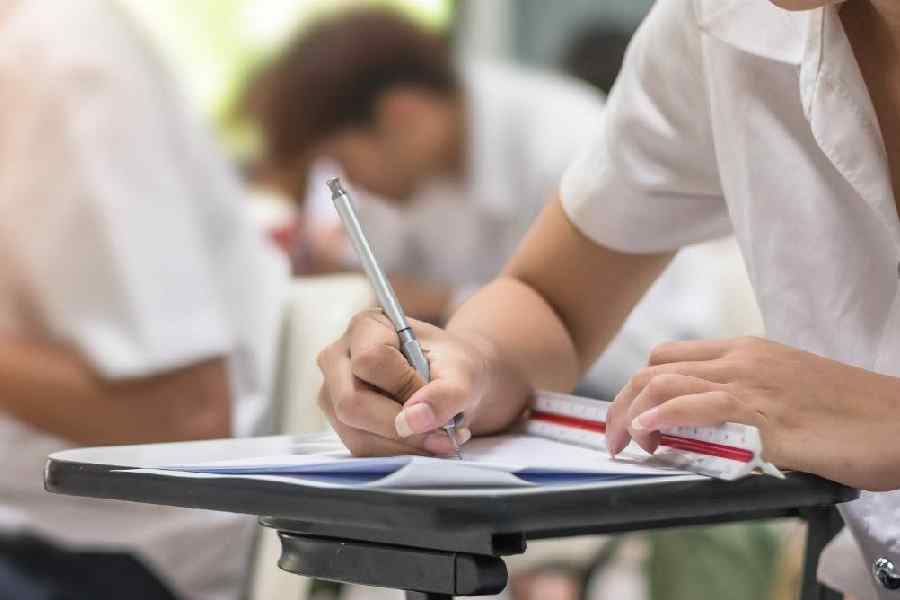Educators mostly apprehensive about involvement of artificial intelligence in exams


Educators are mostly apprehensive about the involvement of artificial intelligence (AI) even in the “supervised in-person hand-written exams” in city schools, let alone online tests.
While many are concerned over the lack of originality with an AI-generated answer, a few appear okay with it since the issue of “copy-paste induced cheating” can be eliminated in a “supervised hand-written exam”.
For Indrani Mitra, former principal of Gokhale Memorial Girls’ School, “in toto replication is not what education stands for”. “The practice of memorising an AI-generated answer and reproducing it in toto in the answer sheets doesn’t serve the purpose of education,” she feels.
But what about “notes” obtained from either reference books or coaching centres? That age-old practice also involves memorising something from other sources. Mitra replies: “We would rather encourage an original effort by a student.”
Sudipta Chakraborty, English teacher of Baranagore Ramakrishna Mission Ashrama High School, has a practical point to prove. “If memorising ‘notes’ and reproducing those blindly in the answer sheets are what we have been reduced to, I will rather keep AI ahead of coaching centres,” he says.
Properly prompted, AI can produce a well-written, informative and authentic write-up on any topic. But, an AI answer needs a thorough check as "it can make mistakes". “More so, what about classroom interaction, what about logical thinking? Acquiring information can never be the sole motto of education,” he makes his stand clear.
For Meena Kak, director of Lakshmipat Singhania Academy, acquiring knowledge and learning should not only aim at scoring marks in the exam. She talks of “communicative and analytical skills” and the “worth of going through textbooks”.
“Students need to acquire the style of compiling answers on their own — which AI doesn’t teach. In fact, if they are unaware of an extensively researched subject matter, they won’t be able to click even open-book assessments in future,” she says.
A few educators, on the other hand, welcome AI — with “proper guidance” and “ethical practice”.
“There is no denying that AI is the future. We encourage students to be exposed to the subject, but carefully,” says Sonali Sen, principal, Delhi Public School Newtown. “We do not want perfect answers. Students should think and write on their own and then look for ways to improve. If AI can guide them this way, we welcome the practice.”
She advocates for a judicious approach to AI while putting priority on “creativity” and “talent”.
The “judicious approach” to AI also features in the statement of Sangeeta Tandon, principal, Shri Shikshayatan School.
Tandon contemporises the topic. “We cannot live in yesteryears. If the world is moving ahead with AI, so should we,” she says adding, “we are not concerned about the source of an answer written by a student in the exam. A student can write it on her own or take it from any reference books, notes or from any AI program… We have nothing to do with the sources.”
But since everything has “pros and cons”, Tandon has a word of caution: “Most importantly, teachers and parents must ensure that students are using this technology judiciously and ethically.”
Though teachers recognise the possibilities of AI applications to improve the learning process, they stress on innovation, creativity and ethical use of technology.